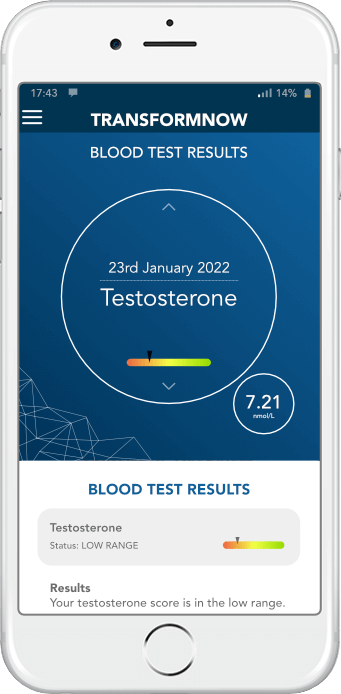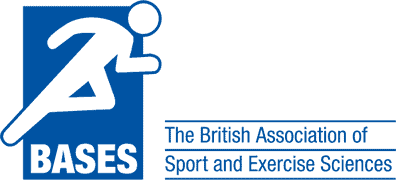Blood Work for PEDs and Steroid Users
Regardless of whether you’re thinking of starting a cycle, are midway through or coming off one, our role is not to judge, but to keep you safe. We’ll recommend the right blood work and follow-up treatments to manage your health.

“We don’t condone the use of performance-enhancing drugs or anabolic steroids. However, we do offer a confidential blood work service to bodybuilders and performance athletes to reduce the risks to your health.”
Imran Khan, TransformNow Founder
Send Your Test Report
We review your results from other test providers.
Clinic Visits
Get in touch to see which tests we recommend steroid users.
Safe, professional and at your convenience
- Most of our blood tests for steroid users only take a few minutes to complete and are carried out by a doctor, nurse or phlebotomist (a specialist in taking blood samples)
- If you want to visit us, we have blood testing clinics in London, Birmingham, Leicester, Bradford, Newcastle and more.
- If you can’t come to us, then we can arrange to have samples taken closer to you or send out a finger-prick blood test kit which you can use at home
- We can also arrange for consultations with specialists such as endocrinologists, urologists and cardiologists if necessary
Understand your steroid blood test results and get stronger
- We call you to tell you what the results mean in plain English and give you actionable recommendations to improve you health and performance.
- We provide a one-to-one service and alert you about follow up assessments, treatment and lifestyle advice on a regular basis
- Our ongoing research into sports and performance optimisation is translated into real plans. No pseudo-science, just fitter, stronger clients at the top of their game!

Get results that change your life
Every blood work consultation starts with how you are now and what you’re trying to achieve – that’s how we get results that matter.
Frequently asked questions
Androgenic-anabolic steroids (AAS) sometimes known as performance enhancing drugs (PEDs) or performance image and enhancing drugs (PIEDs) have been used to enhance athletic performance since the 1930s. However, the associated risks of use have been researched and documented essentially since the 90s. Even today, the long term consequences have been debated endlessly and are not 100 percent known.
The big question as to what constitutes abuse or use is the modern day million dollar question with lots of different views and anecdotal as well as academic evidence to support alternative views. What we do know is that anabolic steroids can cause harm and although not directly but indirectly even cause death. That’s why regular health screening and blood testing is so important.
The use of anabolic steroids can lead to a number of negative health consequences most notably with cardiovascular and liver health. By the time physical symptoms of these develop, permanent harm may already have been done. The safest medical advice that any health professional would give you is to stop using these due to their risks.
However, if you chose to continue taking these PEDs at least we can monitor your blood work and advice accordingly on how to minimize the risks.
Advice is based on medical research, research studies, experience and data – if you are unsure then please take the advice of your doctor or GP.
Anabolic steroids impact hormonal balance, liver and kidney function, cardiovascular health, and metabolism. While enhancing muscle growth and performance, they also pose risks that regular blood testing can detect early.Why Regular Monitoring is Critical
- Ensures Long-Term Health – Many steroid users develop hidden health problems over time.
- Detects Hormonal Imbalances – Prevents endocrine dysfunction and optimizes PCT.
- Manages Estrogen & Progesterone Side Effects – Prevents gynecomastia, water retention, and mood swings.
- Protects Liver & Kidney Health – Steroids stress these organs; early detection prevents damage.
- Reduces Cardiovascular Risks – Steroids alter cholesterol and increase heart disease risks.
- Monitors Blood Thickness (Polycythemia) – Prevents clotting risks; avoids unnecessary bloodletting.
- Prevents Hypertension & Electrolyte Imbalances – Manages blood pressure and hydration.
- Detects Insulin Resistance & Diabetes Risk – Prevents long-term metabolic issues.
Anabolic steroids are synthetic derivatives of the hormone testosterone which is the main male hormone; it has many functions which include muscle development, strength, and libido. .
Anabolic steroids work in several different ways in the body:
- When we put our bodies through stress such as heavy weight lifting or exercise tiny micro tears occur in muscle. In non users the bodies natural testosterone repairs these tears and creates new and bigger fibres. Testosterone and other anabolic steroids essentially quicken this process so the fibres are repaired quicker and grow bigger.
- Anabolic steroids stimulate production of growth hormone (GH) which in turn stimulates the production of IGF-1. IGF-1 has growth-promoting effects on almost every cell in the body especially skeletal muscle, cartilage and bone.
- Intense exercise releases cortisol – the stress hormone, which breaks down muscle tissue. Anabolic steroids inhibit this breakdown resulting in an overall anabolic effect.
- There is evidence that anabolic steroids may increase oxygen uptake and increase cardiac output as they increase the red blood count
- Anabolic steroids may also improve athletic performance by increasing aggressive behaviour.
A common perception is that as testosterone is a synthetic copy of your own bodies testosterone and therefore has no side effects whatsoever.
This is wrong – Anabolic Steroids and Testosterone do have side effects.
The body regulates and controls the blood and tissue levels of testosterone, and secretes in small doses, if the dose is too low or too high then these can cause health problems.
However, the doses taken by athletes are exponentially higher than what the body produces which then can lead to side effects ranging from acne, high blood pressure, thickening of the blood, shrunken testicles and male breast growth probably the most well known. An excess of androgens resulting from steroid use can also lead to male-pattern baldness. Additionally, PEDs can cause problems with libido and erectile dysfunction. Some effects maybe temporary and some may be long term or permanent. Again, this is why blood work is so important.
In addition to the more noticeable effects associated with steroid use, there are other potential consequences that may not be so obvious but can pose a serious health risk. While blood testing can help pick up some of the abnormalities associated with excessive anabolic steroid use it is important to be aware that many of the harmful effects may not cause abnormalities in the blood until it is too late. It is also important to be aware that many of the treatments for the conditions described below are less likely to work with continued steroid use.
Here we describe nine ways that anabolic steroids can damage your health without you even realizing it:
- Cardiovascular disease
- Liver toxicity
- Kidney injury
- Infertility
- Impaired glucose tolerance
- Blood disorders
- Thyroid dysfunction
- Scar Tissue
- Enlarged Prostate
Our Advanced Health & Wellness Performance Profile is a comprehensive panel of 57 biomarkers that provide an in-depth analysis of key health systems affecting testosterone production and overall well-being (so we do not generally recommend hormone tests only).
Essential Blood Tests
1. Complete Blood Count (CBC) – Cellular Health & Immune Function
- Hemoglobin & RBC – Oxygen delivery & energy
- Hematocrit – Blood thickness (cardiovascular health)
- White Blood Cells (WBC) & Subtypes – Inflammation & immune function
2. Biochemistry Panel – Metabolism & Nutritional Status
- Albumin & Total Protein – Liver function & nutrition
- HbA1c (Glycated Hemoglobin) – Blood sugar control & insulin resistance
- Iron Studies – Energy & oxygen transport
3. Thyroid Function – Hormonal Regulation
- TSH, Free T3 & Free T4 – Metabolism, energy, and testosterone synergy
4. Kidney Function – Detox & Fluid Balance
- Creatinine, BUN, eGFR – Kidney efficiency
- Sodium, Potassium, Electrolytes – Hydration & adrenal health
5. Liver Function – Detox & Hormone Metabolism
- ALT, AST, ALP, GGT – Liver enzyme markers
- Bilirubin – Liver & bile duct health
6. Lipid Profile – Cardiovascular Health & Hormonal Balance
- Cholesterol (Total, HDL, LDL, Triglycerides) – Heart health & hormone synthesis
7. Complete Hormonal Panel – Testosterone & Endocrine Balance
- Total & Free Testosterone – Overall & bioavailable levels
- SHBG & Free Androgen Index – Testosterone availability
- FSH & LH – Pituitary function & natural production
- Estradiol & Progesterone – Estrogen balance & side effect prevention
- Prolactin & Cortisol – Stress & hormonal suppression markers
8. Key Nutrients & Inflammation Markers
- Vitamin D, B12, Iron and Folate – Essential for testosterone & energy
- CRP (C-Reactive Protein) – Systemic inflammation marker
How Often Should You Get Blood Tests?
- Before starting steroids – Baseline assessment.
- Every 8–12 weeks during use – Monitor ongoing effects.
- After the cycle & during PCT – Ensure natural hormone recovery.
- Before starting steroids – Baseline assessment.
- Every 8–12 weeks during use – Monitor ongoing effects.
- After the cycle & during PCT – Ensure natural hormone recovery.




